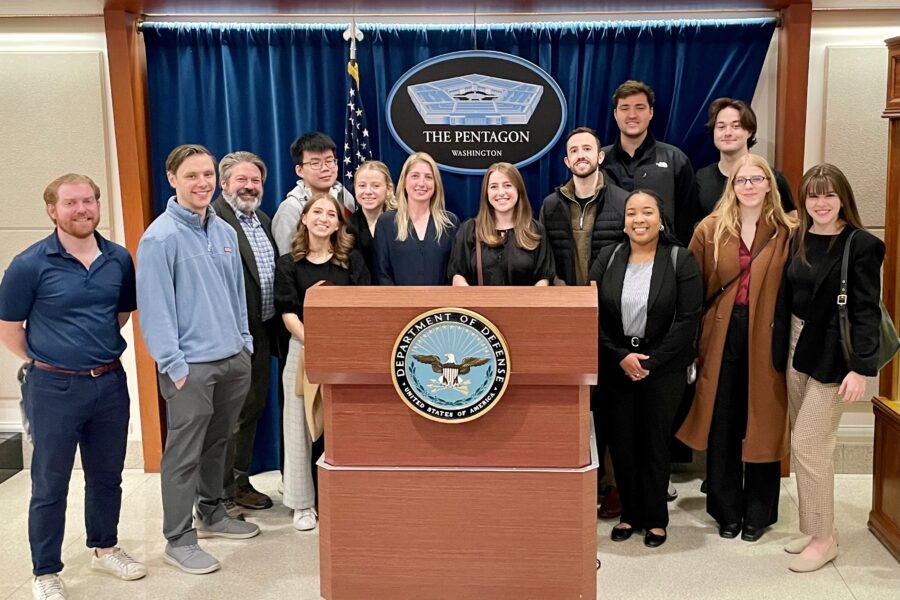
A new era in national security law
The world is facing unprecedented national security threats. Geopolitical tensions, climate change, and emerging technologies are creating a perfect storm of challenges. Our post-war security institutions struggle to keep pace, and democratic norms are under assault. Recognizing the limitations of government-led innovation, Georgetown is uniquely positioned to drive transformative change in this rapidly evolving field.
Our work
We are a think and do tank, connecting research to real-world security problems and preparing students to serve in a rapidly changing national security ecosystem.

Research & Projects
The Center’s research and projects deliver into the front lines of national security law and policy across three focus areas—National Security & Technology, Conflict, Human Security & Justice, and Emerging Issues, Threats and Norms. Our goal is to help protect the security, well-being and rights of people at home and in the world.

Academics
Georgetown Law is the place to study national security law. We offer the leading J.D./LL.M. Joint Degree in National Security Law, anchored by a faculty who are leaders in their fields, and adjuncts who are notable practitioners drawn from the highest levels of government, the private sector and the NGO and advocacy worlds.

Publications
Our faculty and experts offer analysis of and solutions to complex security challenges, from Congressional testimony to books and journal articles.

Our history and values
The Center for National Security launched the first National Security LL.M in the country, quickly solidifying Georgetown Law’s reputation as a premier destination for studying national security law. With a world-class faculty, the leading joint J.D. and LL.M. degree program, and a diverse student body, the Center is at the forefront of the field.
The Center is unique among other national security law programs in its integration of ethics, values, and the Jesuit commitment to social justice. An ethics education offers many benefits, from critical thinking and empathy to respect and tolerance. These soft skills help our future national security lawyers and leaders explore complex problems from different perspectives, enhancing their decision making.




